Welcome to PYPteachingtools.com
Assessment & Reflection: Using SOLO Taxonomy in the IB PYP
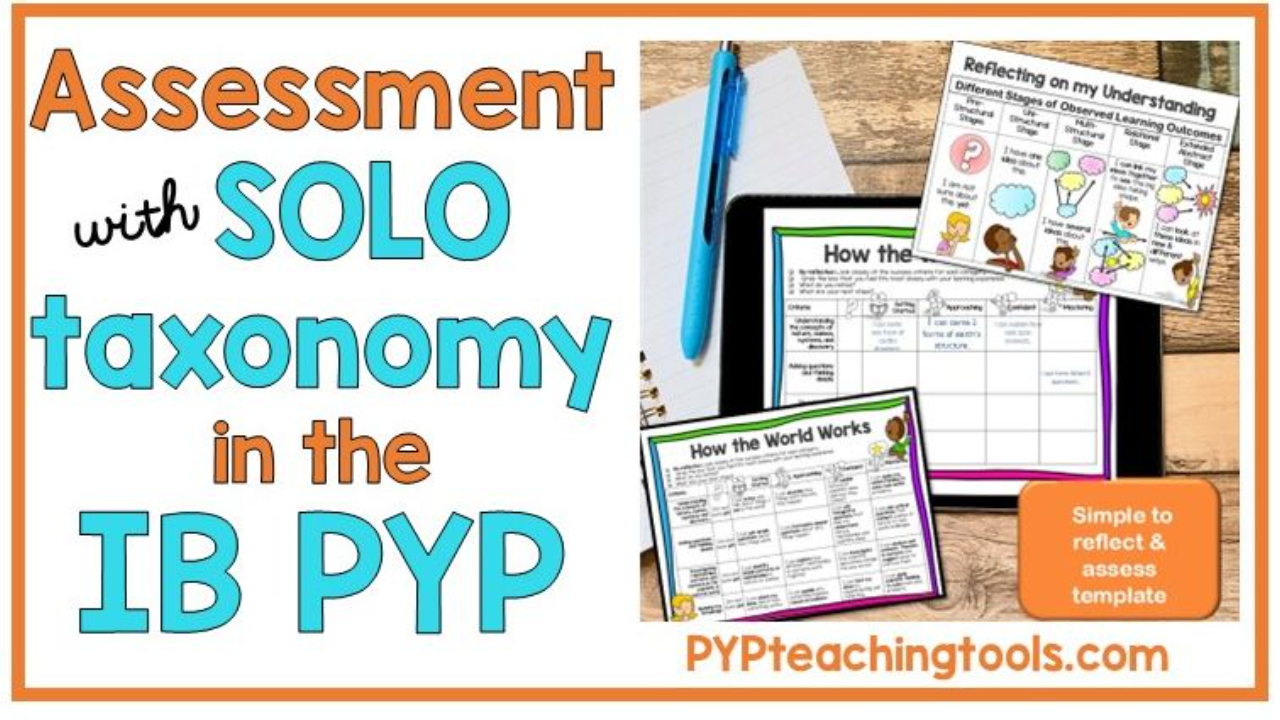
Developing Reflective Thinkers: Using SOLO Taxonomy in the IB PYP
Why SOLO matters in a concept-based classroom
In an inquiry-driven IB PYP classroom, assessment is not just about what students know. It is about how they think, how they connect concepts, and how they grow as reflective learners. SOLO Taxonomy (Structure of Observed Learning Outcomes), created by John Biggs and Kevin Collis, provides a simple yet powerful framework to track and support this growth. Let me share how I use it in my classroom to develop and support our culture of on-going reflection.
SOLO describes levels of understanding:
-
Prestructural – The student is missing the point
-
Unistructural – One relevant idea is identified
-
Multi-structural – Several relevant ideas are collected but remain unconnected
-
Relational – Ideas are linked into a meaningful whole
-
Extended Abstract – The learner transfers and applies understanding in new ways
In many ways, SOLO mirrors the learner’s journ...
5 Ways to Bring Inquiry Into Your IB PYP Math
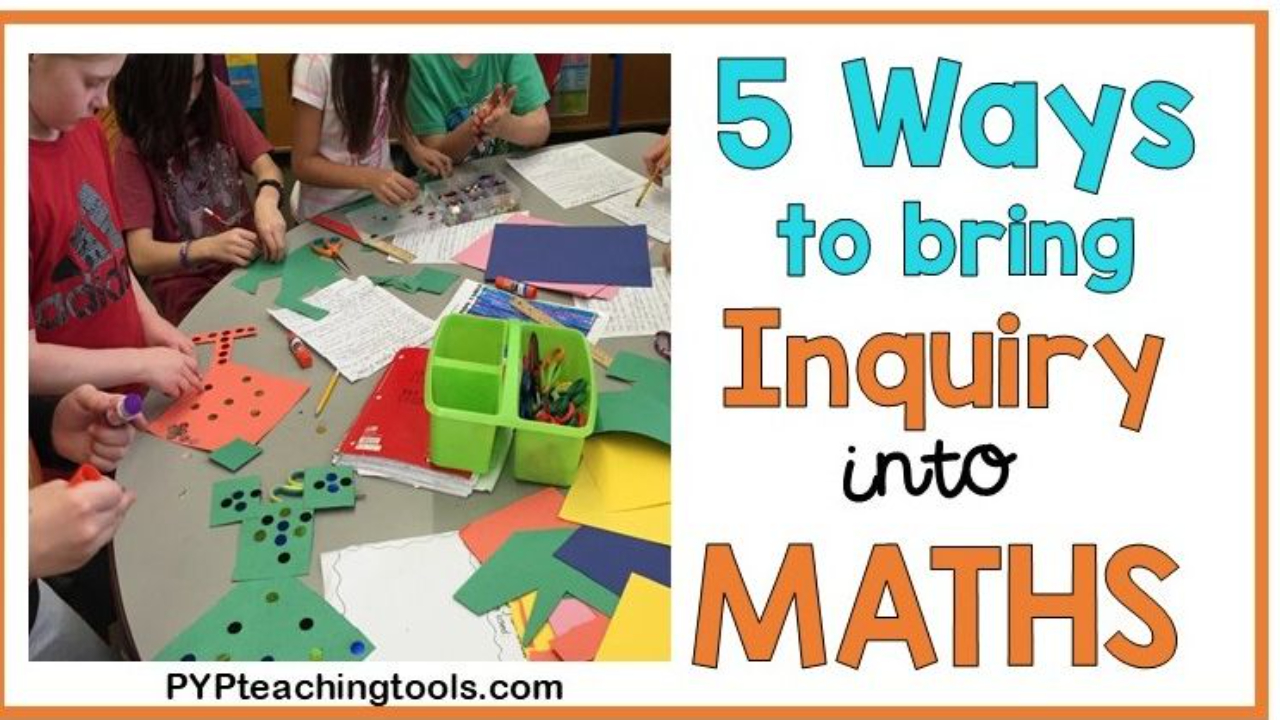
Maths is so much more than “finding the answer.” When we connect it to everyday experiences, it becomes about seeing patterns, asking questions, and making sense of the world.
One simple but powerful guiding question is:
Where’s the maths here?
This question opens the door to authentic inquiry, giving students the chance to explore mathematics through curiosity, context, and connection. Below are five strategies you can use with any age group to nurture student agency and highlight maths through a conceptual lens.
I'm bringing you 5 ideas that can be applied with ANY age and really support student agency, identifying those threads for inquiry and all through a conceptual lens.
When we connect maths to everyday experiences, it becomes less about “finding the answer” and more about seeing patterns, asking questions, and making sense of the world.
Find the threads for inquiry.
Consider the big question: Where's the maths here?
Here are 5 simple, hands-on ways to bring that spiri...
Developing ATL Skills in the IB PYP Early Years Slow Looking See Think Wonder
Slow Looking to Spark Inquiry: Using Look & Wonder Story Mats to Build ATL Skills in the PYP
One of my favourite parts of an inquiry is that moment when my students’ eyes widen and they lean forward, eager to share a question or idea that just popped into their minds. That’s when I know I’ve sparked genuine curiosity. Over the years, I’ve experimented with different provocations to tune into new units of inquiry, but one tool has really transformed the way my learners engage in those early stages: Look & Wonder Discussion Mats. What I didn’t anticipate at first was how powerfully they would support the IB PYP Approaches to Learning (ATL) skills - not just in the early years, but all the way through to upper primary.
Observations were superficial and questions were shallow.
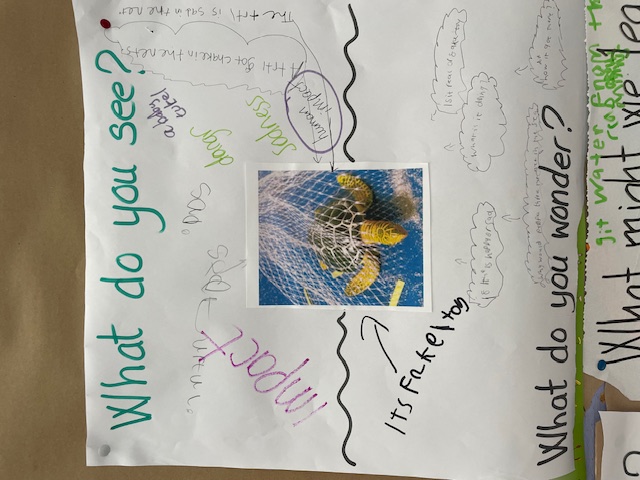
How to Use Look & Wonder Story Mats to Develop Observation, Thinking, and Communication Skills
I created these mats to help my students slow down, notice details, and wonder out loud. At first, their observati...
How to Develop Conceptual Thinkers in the IB PYP with Inquiry-based Investigations
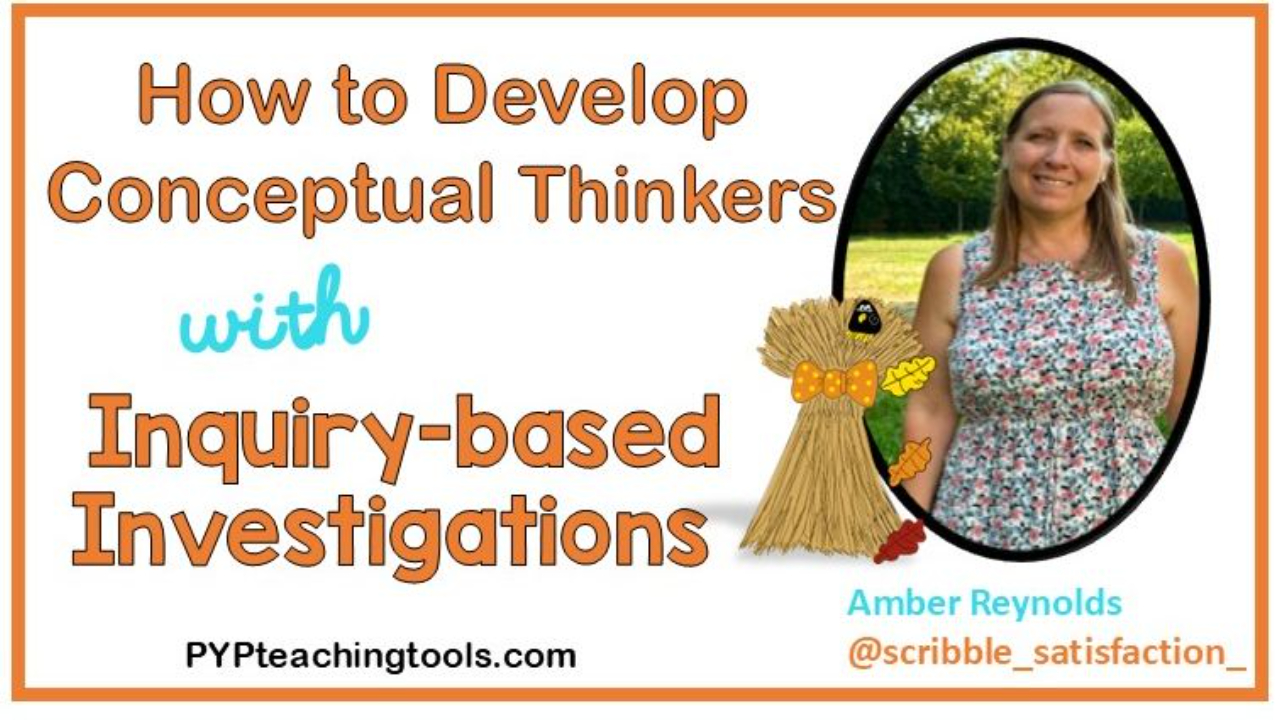
Fall into Conceptual Learning with the PYP
The leaves are turning already in Scotland and the air becoming crisp. It's actually my favourite time of year. Autumn provides a rich backdrop for inquiry in the IB PYP classroom. Seasonal changes are not just fun and exciting for children; they are also filled with opportunities to develop conceptual awareness. By connecting those additional concepts of harvest, change, natural cycles and patterns together with autumn traditions to the PYP specified concepts and the Learner Profile, teachers can design learning experiences that are hands-on, inquiry-driven, and deeply meaningful. 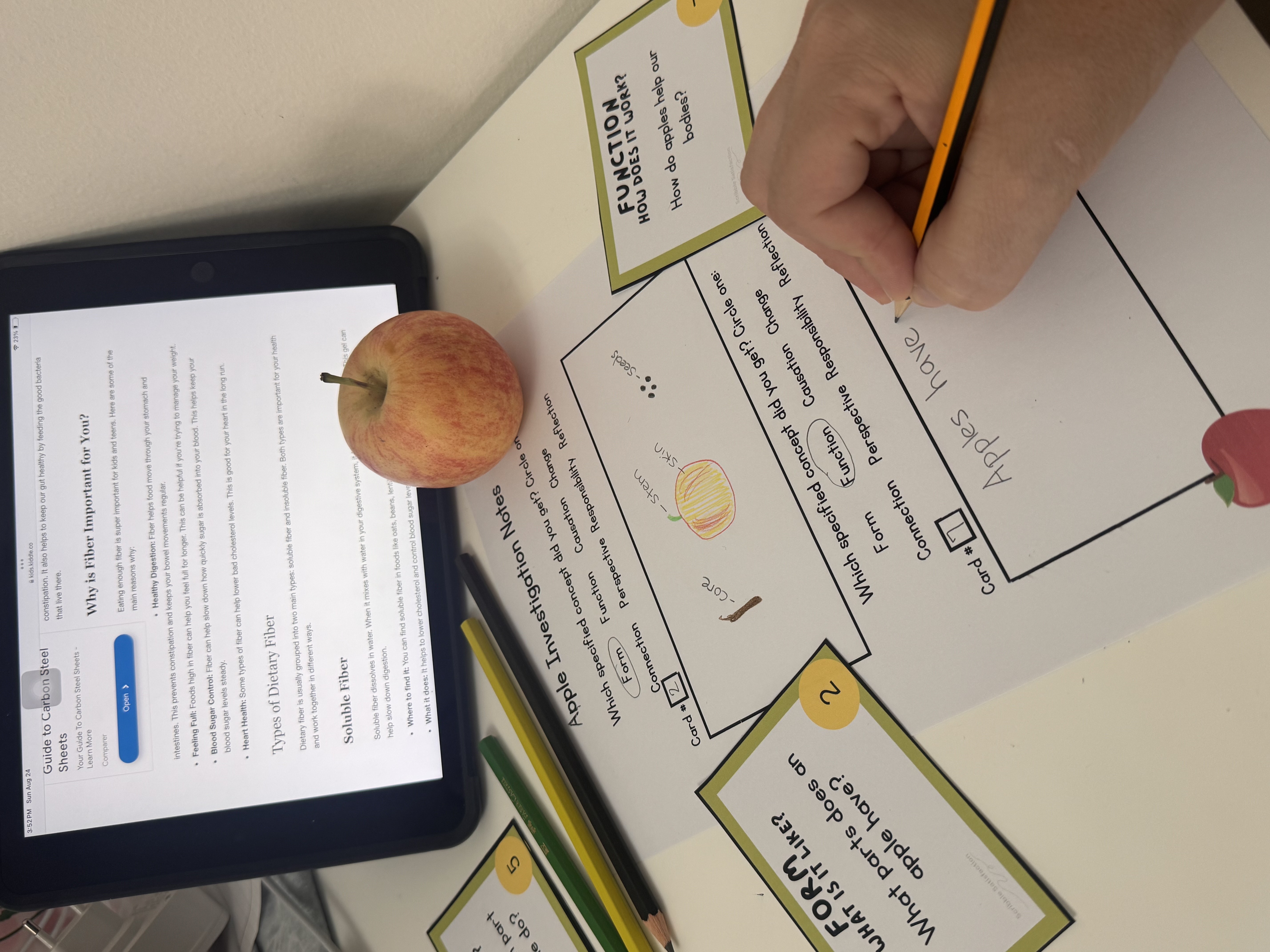
To help bring these ideas to life, I'm delighted to introduce our guest writer and fellow PYP educator, Amber Reynolds, originally from the United States, now living and teaching in Albania. Amber has created a brand-new Fall Collection of resources that align with the IB PYP specified concepts. These activities combine the excitement of the season with the dep...
7 Classroom Activities to Boost Critical and Creative Thinking Skills for the IB PYP

7 Classroom Activities to Boost Critical Thinking in the IB PYP Classroom
Developing critical thinking skills is crucial in an IB PYP setting, as it helps students become thoughtful inquirers. Here are seven practical classroom activities that align with the Approaches to Learning skills and encourage critical and creative thinking.
1. Inquiry Jar Exploration - Thinking & Research Skills
Present students with an Inquiry Jar or bag filled with objects related to the concepts within your unit of inquiry. Working in pairs, students predict each item’s purpose and justify their thinking. This activity sparks curiosity, supports questioning techniques, and builds evidence-based reasoning. I have blogged about the inquiry jar previously. 
This inquiry jar strategy is a great way to tune into the additional concepts within your theme using tangible materials.
2. A Questionable Conversation - Communication & Thinking Skills
Invite students to participate in a dialogue where they can on...
Spook-tacular Halloween Literacy Activities for Upper Elementary: Supporting IB PYP ATL Skills

There isn't much as scary as Halloween in the elementary classroom! You either love it or hate it! 🎃 Whatever your feelings about Halloween, brace yourself and keep the inquiry flowing with these skills-based learning tools I have for you. And all perfectly aligned for your upper elementary IB PYP classroom.
Thinking & Communication Skills through Literacy
Halloween is the perfect time to bring a little magic to your classroom and engage students with creative, spooky literacy activities. By integrating Halloween-themed tasks into your learning environment, you can provide meaningful experiences that foster critical Approaches to Learning (ATL) skills, such as thinking, communication and social skills; key elements of our IB PYP framework. Below, we explore some eerie-sistible 🎃Halloween literacy activities that will make your planning easier.
1.Spooky Story Starters for Creative Writing _Thinking & Communication Skills
Get your students’ imaginations howling with a Halloween-the...
What Is An Inquiry Cycle in the IB PYP ?

If you're new to inquiry based learning or the IB PYP, you may very well be asking yourself what exactly is an inquiry cycle? Well, basically it is a marvellous journey that you take alongside your students, allowing a common language into exploration.😊 Let's dive in and unpack it together.
Concept-based inquiry is at the heart of the IB PYP pedagogy and the process of inquiry is often modelled as a linear cycle. There are many correct inquiry cycles out there and it doesn't matter which one you prefer to follow or adapt since the process of learning is what's most important for your students. It provides a powerful framework for cultivating curiosity in our classrooms. When we talk about inquiry, we’re talking about active learning; empowering our students to BE thinkers, questioners, explorers, communicators. However, PYP schools are probably most familiar with Kath Murdoch’s inquiry cycle.
In today's post, we’ll explore the fundamental stages of the process of inquiry and I'll o...
Strategies to Support Reflection & Assessment in the IB PYP
You know that way when your students' reflections are just regurgitated and not really giving us insight as to their conceptual understanding? When it comes to reflection and assessment in the IB PYP, fostering student voice and agency is at the forefront of creating engaged and lifelong learners. At the heart of this endeavour we want our students to truly understand what it means to BE reflective. Not only an attribute of the Learner Profile but being reflective is also a key Thinking Skill. The importance of this skill comes into play when we are assessing the concepts around which we plan and implement our inquiries. Concepts serve as the backbone of the IB PYP curriculum. Concepts not only deepen understanding but also empower students to take ownership of their learning experiences.
Easy Strategies to Develop Reflective Thinkers

I'm excited to introduce a powerful approach to enhance reflection and inclusive assessment in the IB PYP through the lens of conceptual awareness. ...
5 Steps to Introducing Visible Thinking Routines Into Your IB PYP Class


Regardless of the age you are teaching, integrating Visible Thinking Routines into any IB PYP classroom can significantly enhance student engagement and learning outcomes. Today, Im bringing you five effective ways to introduce Visible Thinking Routines (VTRs) into your classroom that I have found to be most effective:
- Begin with a Foundation:
- Before diving into Visible Thinking Routines, establish a positive and open classroom culture where students feel comfortable sharing their thoughts and ideas. This sense of community enables a feeling of security and that there is a partnership to the learning.
- Ensure that your students have a fundamental awareness of their metacognition and what it means to BE an inquirer and a thinker, underlining this is a practical way to bring these attributes to life; what it looks-sounds-feels and acts like. I ALWAYS begin the school year with a focus on Thinking Skills, specifically the sub-skill of Reflection, which includes metacognitive awa ...
Tuning Into the IB PYP Inquiry with Collaborative Discussions

As we continue to navigate the dynamic landscape of student led inquiry in the IB PYP and beyond, one thing remains constant: the importance of fostering effective communication skills and nurturing inquiry-driven minds. I'm delighted to share another innovative strategy, albeit not that new, that empowers facilitation of a transdisciplinary inquiry through collaboration and communication skills. Today, I have some strategies for tuning in and developing communicators. And I'm excited to introduce you to a powerful tuning in and provocation tool: Concept Discussion Mats.
Why Communication Matters
Effective communication lies at the heart of the IB Primary Years Programme. It's not just about conveying information but also about collaboration: actively listening, exchanging ideas, and constructing meaning collaboratively. In an increasingly interconnected world, the ability to communicate effectively is a fundamental skill that empowers students to navigate diverse perspectives an...


